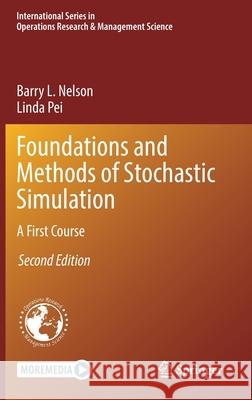Foundations and Methods of Stochastic Simulation: A First Course » książka
topmenu
Foundations and Methods of Stochastic Simulation: A First Course
ISBN-13: 9783030861933 / Angielski / Twarda / 2021 / 310 str.
Kategorie:
Kategorie BISAC:
Wydawca:
Springer
Seria wydawnicza:
Język:
Angielski
ISBN-13:
9783030861933
Rok wydania:
2021
Wydanie:
2022
Numer serii:
000904291
Ilość stron:
310
Waga:
0.63 kg
Wymiary:
23.39 x 15.6 x 1.91
Oprawa:
Twarda
Wolumenów:
01
Dodatkowe informacje:
Wydanie ilustrowane











